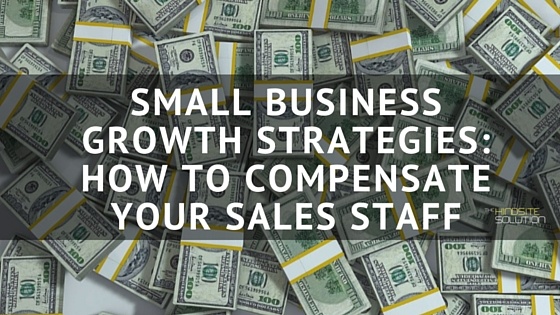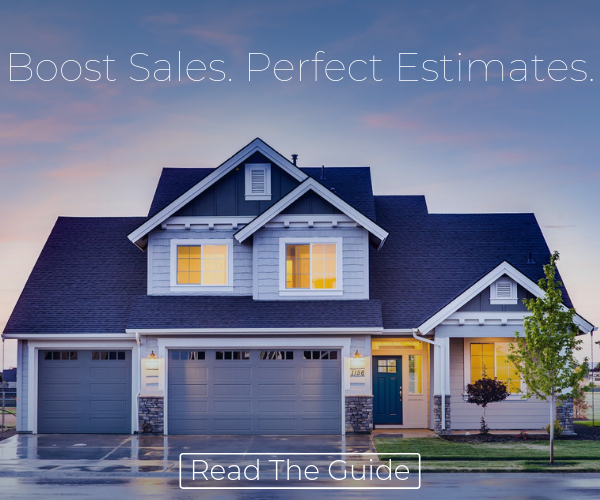
I went shopping for a car a while back. I ran into the slimiest salesperson on the planet. They lied multiple times about the car, wouldn’t let me leave, didn’t listen to what I was looking for and I basically left thinking the salesman would have done anything possible to sell me a car. If I would have told him I’d only buy the car if he would punch himself in the face as hard as he could 10 times, I probably would have walked away with a car and he would have walked away with a couple black eyes.
He’s the person that gives salespeople a bad name. But for your field service business, your salespeople can be the most important hires you make. A good salesperson can make the difference between having an average year and a great year.
Yet, many field service businesses don’t understand how to pay their sales reps. Which is understandable: Typically, a small field service business is started by someone who is good at the work they do (say landscape management) and decides to strike out on their own. They’re the first sales representative. And they’re highly motivated to sell because their ability to put food on the table depends on it.
And then the growth starts. They grow to a point where they need to be able to focus on running the company, not selling. So they look to hire a salesperson. But they have no idea how to fairly and adequately compensate their sales representative.
So, with that in mind, let’s take a look at some sales compensation ideas:
Base Salary vs. Commission
The first thing to think about when deciding how to compensate your sales reps is your base salary/commission mix. Here are some ideas:
- High Base, Low Commission: In my experience you should never do this. You don’t want to pay your salespeople a high base with a low commission if you want them out pounding the pavement. Because if they’re getting paid just to sit around, they will do just that.
- Medium Base, Medium Commission: For young companies hiring their first salesperson this isn’t usually a great idea. However, for established companies who own a market and have consistent sales numbers, it might be better to try to structure the compensation plan so that salespeople earn about half their income from their base, and the other half from commission. Think about it: If you have limited competition and own a market, you might actually be hurting yourself by having commissions make up a large portion of sales compensation. If you own the market, you’re going to get sales, regardless of how good or bad your sales team is.
- Low Base, High Commission: You want to motivate your salespeople to sell? Make them earn their keep by offering them a low base and a high commission. Don’t make your base so low that you can’t attract qualified salespeople, though. Think of your base pay as the bare minimum someone would need to survive (depending on your location, that might be $1000 to $2000 a month). The commission is what lets them buy that new BMW.
Commission Payout
The other thing to think about once you’ve determined your Base/Commission mix is how you’re going to pay commission. Some tips:
- Never tie a commission to just the number of sales made. You know why? Because salespeople will focus entirely on making sales, some (or most) of which may not be profitable for the company. Instead, tie the commission to the percentage of revenue or profit made over a specific period of time (say a month). It’s a little bit more difficult to link commission to profitability, but well worth it in the long run. If your sales rep sells a job that costs $10,000, you bid $10,100, and your sales rep is paid 5%, you just lost money on that job. If they’re getting 20% of profit, instead, you’re guaranteed to make money on a job.
- Consider creating “ramped” commissions. On a flat commission, you’d pay 5% no matter how much the sales rep sold. That’s great, but why not structure your compensation plan so that your sales rep gets higher commissions if they meet sales goals? That’s called a “ramped” commission and works like this: For the first $50,000 in profits, your sales rep earns 17%. For the next $50,000 in profits, they earn 20%. You’d be surprised at how much changing from a flat commission structure to a ramped commission structure incentivizes your salesperson and ultimately increases sales.
- Reward Your Top Performers – If you’ve got a team of salespeople, create an environment where your top performers are highly rewarded. If you can make it a competitive environment, even better. For instance, at the beginning of the year, tell your reps that the person who achieves the highest profit will see a 5% commission increase the following year. Or, reward your high performers by increasing their base pay by 5%. You don’t want them to get complacent, but finding great sales reps isn’t easy, and you want to keep yours around as long as possible.








